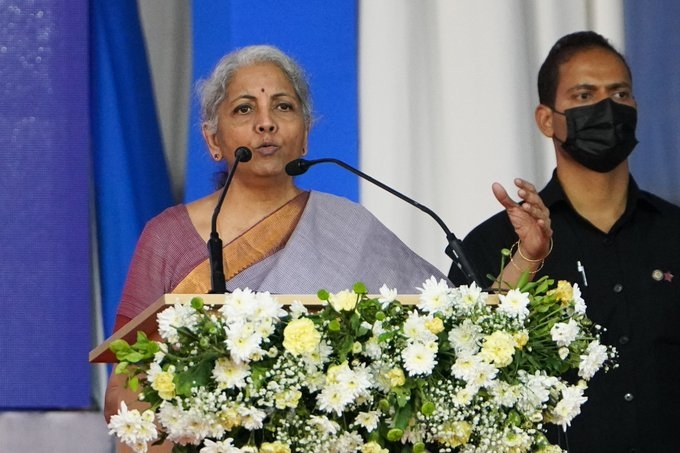Reducing inflation is a collective responsibility of Centre and states: FM Sitharaman
Total Views |
New Delhi, Sept 8: Finance minister Nirmala Sitharaman said that bringing inflation down cannot be the sole responsibility of the Centre and that states play a critical role in the management of prices.

She made the case for inflation management is a collective responsibility of both the Centre and states especially in reference to prices of fuel. She said that the Centre twice brought down taxes on power thereby reducing the prices but the onus is on states also to follow suit.
She flagged inflation levels in some states as being higher than the national average as a cause for concern. Those states haven't cut tax on fuel products and that makes inflation higher, she highlighted. "It cannot be that inflation is handled only by the Centre and when states don't take enough steps that part of India suffers for want of a relief from the stress of inflation." She said that the movement of food grains and food-related items has a bearing on overall prices since it dominates the index. Sitharaman, who was speaking at an event on taming inflation organized by ICRIER, said the government has taken steps to bring relief to people suffering from high prices. She said that the government introduced export duties on critical raw materials like steel ensuring that a proper balance is struck between the domestic prices and the interest of producers. The finance minister said that inflation impact spreads due to globalization and that the central banks globally are working in tandem to tame it. On importing cheaper Russian oil, she said it was part of the country's inflation management strategy and that others were also doing something similar. "And that's where I give credit to the statesmanship of the prime minister to make sure globally that we did keep up the relationship with all countries but yet managed to get the Russian fuel which is what Japan is doing today, which is what some other countries are doing," Nirmala Sitharaman said. Sitharaman pointed out that taming inflation is an exercise that entails many aspects and not all of them can be expected to be handled by monetary policy alone.
She batted for increased synchronization between India's monetary and fiscal policy. "I would say India's inflation management, the word taming inflation or the word keeping it within the tolerance limit is an exercise of so many different activities and the majority of which is outside of the monetary policy given in today's circumstances," she said.
Also Read: What is the truth about Adani's Debt?
India's retail inflation peaked in April at 7.8% and has moderated since then with the latest inflation print in July at 6.7%. RBI Governor Shaktikanta Das has said that inflation is expected to soften in the second half of the current fiscal with the overall headline number dipping within the tolerance band in Q4.